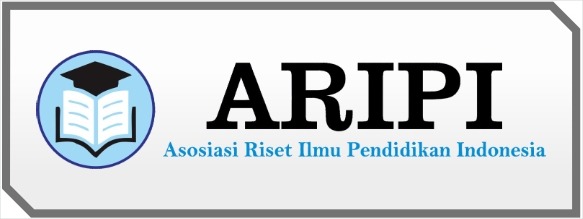The Impact of Stationery Rewards on the Reading Frequency of Grade 4 Students: An Experimental Study
DOI:
https://doi.org/10.61194/education.v2i1.500Keywords:
Awards, Reading Frequency, ChildrenAbstract
This study investigates whether providing stationery rewards can increase the reading frequency of 4th-grade students at an elementary school in Wonorejo Village, Blitar Regency, East Java. The research adopts an experimental within-subject design, utilizing primary and secondary data sources. Primary data were collected through direct observations and structured interviews, while secondary data were obtained from relevant literature. The research applied a quantitative approach with a repeated-measures technique for analysis. Validity was ensured through controlled experimental conditions, and reliability was achieved through repeated trials over ten days. The results indicate that while the provision of rewards led to a temporary increase in reading frequency, the effect was not sustained once the intervention ceased. The discussion highlights the limitations of extrinsic motivation in sustaining long-term behavioral changes and suggests alternative strategies for improving reading habits. The study concludes that while rewards can serve as an initial motivator, a comprehensive approach integrating intrinsic motivation is necessary for lasting improvements. This research is significant as it provides insights into effective literacy development strategies in elementary education.
References
Barlow, D. H., Nock, M. K., & Hersen, M. (2009). Single Case Experimental Designs: Strategies for Studying Behavior Change. Pearson.
Basuki, I. A. (2011). Kemampuan Membaca Pemahaman Siswa Kelas IV SD Berdasarkan Tes Internasional dan Tes Lokal. Bahasa dan Seni, 2, 202–212.
Campbell, D. T., & Stanley, J. C. (1963). Experimental and Quasi-Experimental Designs for Research. Houghton Mifflin.
Deci, E. L., & Ryan, R. M. (2000). The “What” and “Why” of Goal Pursuits: Human Needs and the Self-Determination of Behavior. Psychological Inquiry, 11(4), 227–268. DOI: https://doi.org/10.1207/S15327965PLI1104_01
Fitriyah, A., Aminah, U., & Safitri, A. D. (2024). Educational Innovation Through the Independent Learning Initiative in Indonesia. Eduscape : Journal of Education Insight, 2(4), 240–249. https://doi.org/10.61978/eduscape.v2i4.446 DOI: https://doi.org/10.61978/eduscape.v2i4.446
Guthrie, J. T., & Wigfield, A. (2000). Engagement and Motivation in Reading. Handbook of Reading Research, 3, 403–422. DOI: https://doi.org/10.1207/s1532799xssr0303_1
Johnson, B., & Christensen, L. (2004). Educational Research: Quantitative, Qualitative, and Mixed Approaches. Boston: Pearson.
Kazdin, A. E. (2011). Single-Case Research Designs: Methods for Clinical and Applied Settings. Oxford University Press.
Khaerawati, Z., Nurhasanah, N., & Oktaviyanti, I. (2023). Level Kemampuan Membaca Siswa Sekolah Dasar di Kelas Tinggi. Jurnal Educatio FKIP UNMA, 9(2), 637–643. DOI: https://doi.org/10.31949/educatio.v9i2.4521
Mediana, R., Latifah, S., & Mutaqien, S. (2022). Analisis Faktor-Faktor yang Mempengaruhi Kemampuan Membaca Siswa. Jurnal Pendidikan Dasar, 15(1), 21–34.
Muliawanti, T. (2022). Analisis Kemampuan Membaca Pemahaman Siswa SDN 1 Sagaranten. Jurnal Ilmiah Pendidikan, 8(2), 134–145. DOI: https://doi.org/10.31949/jcp.v8i3.2605
Nurmasari, L., Subiyantoro, S., & Fadhilah, S. S. (2019). Comparison of DRTA Strategy with Guided Reading in Improving Reading Comprehension Skills in Javanese Texts. Jalabahasa, 15(2), 97–112. DOI: https://doi.org/10.36567/jalabahasa.v15i2.323
Priatna, T. (2012). Educational Ethics. Bandung: CV Pustaka Setia.
Rahman, W., S., N., S.D., & Sakti, A. W. (2018). Students’ Literacy Skills in Reading Comprehension Learning through the Guide Reading Model. Bandung: Indonesian University of Education.
Santrock, J. W. (2020). Educational Psychology. McGraw-Hill Education.
Slavin, R. E. (2018). Educational Psychology: Theory and Practice. Pearson.
Snow, C. E. (2002). Reading for Understanding: Toward a Research and Development Program in Reading Comprehension. RAND Corporation.
Spencer, A. (2019). 1 School of Health & Human Performance Dalhousie University Halifax Canada, 2 Faculty of Education, of Child. AIMS Public Health, 6(4), 461–476. https://doi.org/10.3934/publichealth.2019.4.461 DOI: https://doi.org/10.3934/publichealth.2019.4.461
Sunanto, J., Takeuchi, K., & Nakata, H. (2005). Introduction to Single Subject Research. Tsukuba: CRICED.
Tampubolon, D. P. (2015). Reading Ability Effective and Efficient Reading Techniques. Bandung: Angkasa.
Vygotsky, L. S. (1978). Mind in Society: The Development of Higher Psychological Processes. Harvard University Press.
Yusuf, M. (2022). Kesulitan Awal Membaca pada Anak Usia Dini. Jurnal Pendidikan Anak Usia Dini, 7(1), 45–59.






